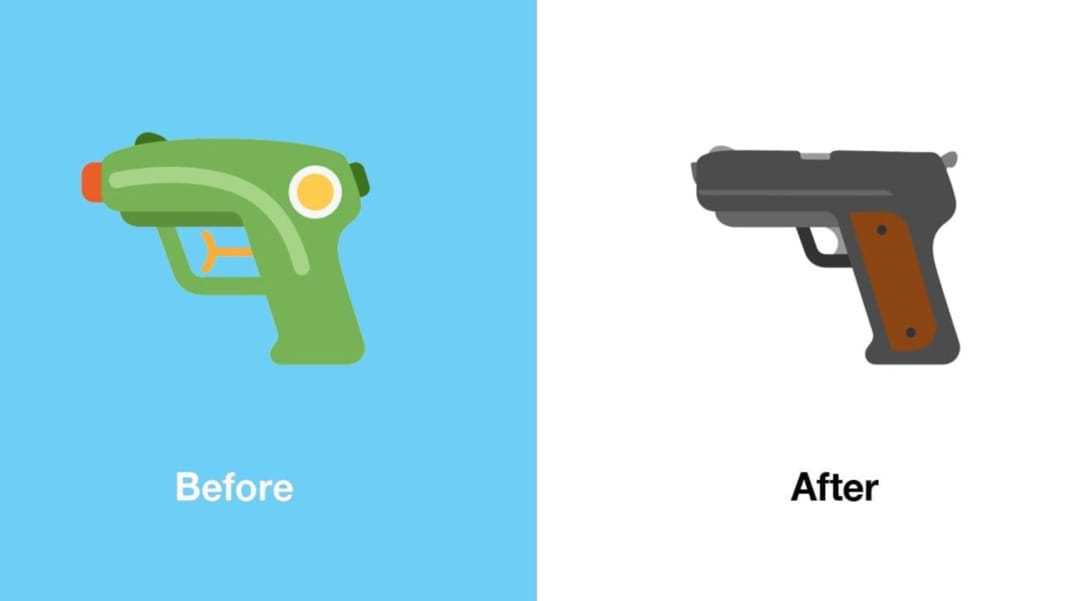In a surprising move, X has changed the water pistol emoji back to a regular handgun. An X employee announced this change in a post last week. The company hasn’t provided an explanation for this decision, but it seems to align with the bold image associated with Elon Musk’s social network.
A brief history of the water gun emoji
In 2018, Twitter and other major platforms like Google and Facebook replaced the traditional pistol emoji with a green-and-orange water gun. Apple was the first to make this change in 2016, while Microsoft held out briefly before also making the switch. This movement aimed to promote a less violent representation of the emoji.
The Unicode Consortium, the organisation responsible for standardising emojis, eventually followed the lead of these platforms. They officially renamed the pistol emoji to “water pistol” to reflect this change universally across different platforms. Despite the common designations set by the Unicode Consortium (U+1F52B for the water pistol), each platform has the freedom to design the emoji as it sees fit. This autonomy led to notable events like the Great Cheeseburger Emoji Debacle, which was resolved in November 2017.
update announcement 📢
— kache (@yacineMTB) July 18, 2024
on x dot com (the website), the gun emoji was returned back into its rightful form: an m1911
🔫🔫🔫🔫🔫🔫🔫🔫🔫 https://t.co/FlXJtOpU3H pic.twitter.com/cqd7KHcxUJ
Impact and availability
The regular handgun emoji is visible only on X’s web version. The mobile app has yet to be updated, but an update is expected to roll out soon. Users should anticipate seeing this change reflected in their mobile apps shortly.
This move has sparked various reactions from the community, with some users expressing concern over the return to a more violent symbol. However, others see it as a trivial change in the grand scheme of social media operations. Regardless of opinions, the change marks another chapter in the evolving landscape of emoji representation and platform-specific decisions.
X’s decision to revert to a traditional handgun emoji underscores the ongoing debate about the role and impact of digital symbols in communication. As emojis become an increasingly integral part of online interaction, the choices made by platforms like X continue to influence the broader digital dialogue.





